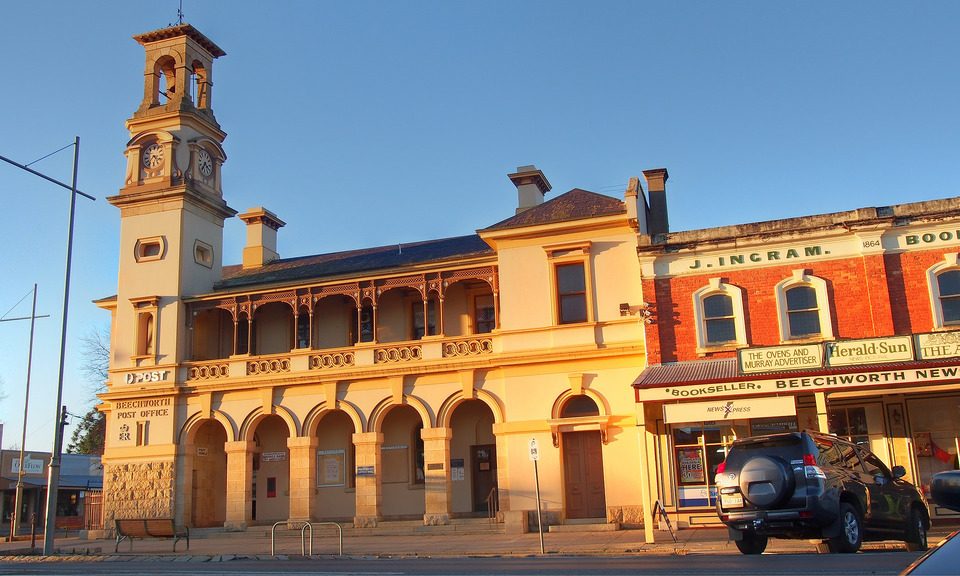Victorian Ratepayers After Accountability And Good Governance…
A Promo Offer From Business Now Asia Pacific TV…
September 25, 2007Kate…On Tri-Nature And Network Marketing
September 25, 2007Victoria went through the pain of council amalgamations in the mid 90s, now it’s Queensland’s turn. A reader has suggested passing on info for troubled Queenslanders about Ratepayers Victoria Inc whose current concerns are:
- Secrecy in Council deliberations
- “Community Consultation” that is often ignored
- Increasing powers of Council CEOs
- Cost shifting to local government
- Lack of equity between rates and services provided in large rural shires
- Rapidly increasing rate burden
- Short term grants with long-term staffing and financing implications
- Too many Council activities.
What Ratepayers Victoria aims to do:
- To function as an educational body to disseminate information on issues and processes of local government
- To work for equity for ratepayers and residents
- To work for improved democratic process and participation in local government
- To work for accountability and good governance in local government, all tiers of government, and other relevant bodies
- To promote the return of local government to local control.
When I checked out their website I was interested to read what President Jack Davis has to say about some of the problems that currently exist in the Local Government sector.
“Citizens across the Australia are uneasy with the quality governance on offer Council State and Federal levels of government. Bureaucrats and politicians regularly use rhetoric of “transparency and accountability ” yet citizens can find no solid mechanisms to mandate this.
Acting with the authority of elected representatives, small numbers of elected officials continue to deliberate in closed sessions. In the case of local government the influence of the CEOs across the State is considerable – and the closed meeting culture is significant to this.
Theoretically, hearings and public consultation sessions are available to the public on significant matters. However there is nothing to hold councils to these as decisions are often made prior to hearings.
Despite the rhetoric of “transparency” and “accountability” the “Update of the Local Government Act currently before Parliament seems to make councils even less accountable. The changes include the ability of CEOs to declare any matters they wish “in confidence” and beyond public scrutiny.
The current spiel of autonomy for local government “answerable to its electors” is a parody – until processes are put in place for ratepayers to have effective input to decisions by council, local government will be at the mercy of closed governance and predators attracted to closed business and rich resources.
So-called Best Value “Codes of Practice” looks good on paper and take much administration time to develop but unless able to be held accountable they are expensive smokescreens.
Many councillors are ill-equipped to scrutinize to the extent required and the closed internal culture makes them dependent on the CEOs and sets their loyalties to their group rather than to the ratepayers who elected them.
In the case of serious matters, ratepayers may attempt public meetings with council with reasonable arguments presented, or petitions presented to be left on the table, or appearances and submissions at hearings – but all can be ignored. Appeals to the Minister are likely to get the stock reply, “If you don’t like what they are doing, vote them out next election!
Supreme Court action is a last resort – and unless accountability measures for proper practice are mandated by the government, we unfortunately will be likely to see more legal action by ratepayers over serious matters that should never have developed.
There is a vital need for a return of ratepayer-initiated referendums for serious issues. Key to transparency would be to mandate briefing sessions as part of full council meetings and “in confidence” matters heavily restricted.
Minister of Local Government appears unwilling to acknowledge flaws in the system, so a new office, with separated authority and with real supervising power over local government, ought to be established.”
For all these reasons PLUS the uncertainty council amalgamation brings, other states and territories might consider their own ratepayers association…they could swap notes with Victoria!
Ratepayers Vic. has received requests from around the State for info about setting up an association of ratepayers and residents. Their advice:
“For the community to engage with our amalgamated Councils and to be heard & recognised by State government & bureaucracy we need to be organized. This information will enable you to form and incorporate a ratepayers/residents group. It only needs a group of six people.
Ratepayers Victoria Inc. was formed as a result of major inequities in rating in the Gannawarra Shire when the farming community finally took their council to the Supreme Court. After that, more and more ratepayer groups began meeting together with the aim of discovering common problems and developing a common voice to directly represent ratepayers.
Realising that “in unity is strength” meetings were held in different venues and slowly the group became incorporated and began to have a recognised profile with the media.
Most members feel strongly about developing more open processes in local government as well as trying to curb Council extravagances. The aim is to ensure the best possible structures in democratic process to create the best possible future for our areas.
Any individual ratepayer can join Ratepayers Victoria Inc. but it improves our lobbying power if we can claim most members are incorporated associations from across the State.
So form an association ASAP and unite through us.”


